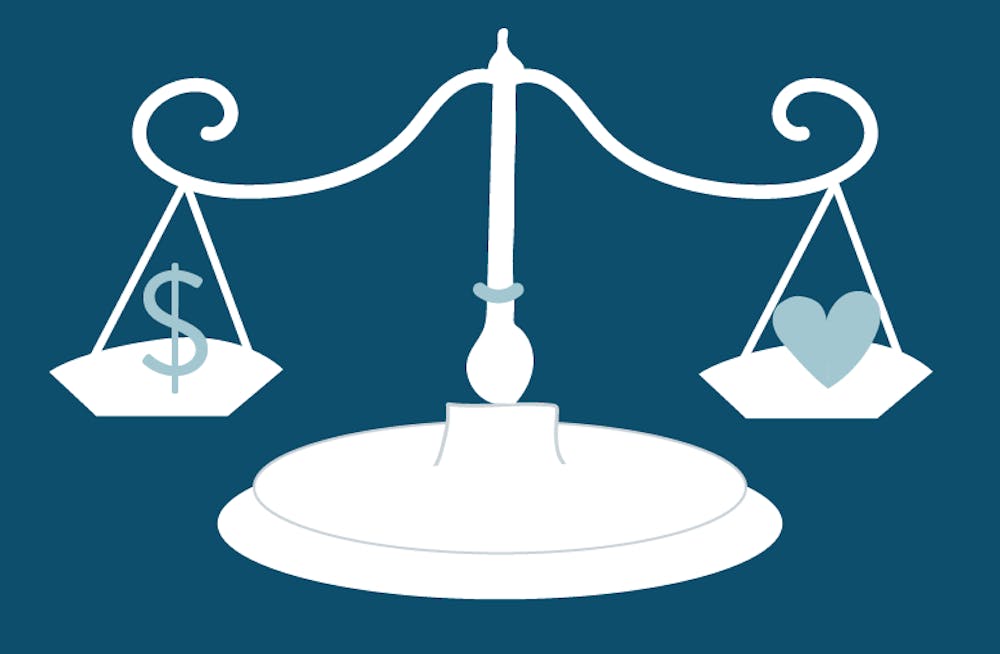
In a wave of high-profile clemency orders earlier this week, President Donald Trump pardoned ‘junk bond king’ Michael Milken, a 1979 Wharton MBA graduate.
Milken pleaded guilty in 1990 to six felonies, including securities fraud and tax violations, in one of the highest-profile cases against a Wall Street executive in history. Although he may be one of Wharton’s most notorious graduates, he is far from the only alumnus to have come under fire for white-collar crimes.
Wharton MBAs have been implicated in insider trading cases such as ‘Operation Perfect Hedge.’ Trump, who graduated from Wharton in 1968, has been accused numerous times of tax evasion and violations of the emoluments clause, a Constitutional provision which prevents federal officials from being compensated by foreign governments.
Regardless of Trump’s pardon, we cannot ignore the fact that Milken was educated at Wharton and that he manipulated the financial sector for his own gain at the expense of average citizens. While he represents the worst of Wharton alumni, the school’s response was to simply take down his photo from the Wharton “Hall of Fame” in 1989. This action is not enough. In the wake of Milken’s pardon, Wharton must implement stricter ethics requirements to directly address white-collar crimes and help prevent future criminal action from alumni.
An expanded ethics requirement will prevent damage to Wharton’s reputation and make the school a leader in promoting social responsibility. Currently, Wharton’s undergraduate curriculum requires students to choose from one of two introductory business ethics courses, LGST 100 or LGST 101. In its MBA program, students again must only take one ethics course as part of the core curriculum. One course is not enough to change someone’s ethical outlook on business or fully give them tools to solve questions of moral ambiguity.
An expansion of ethics requirements would also show Wharton taking a firm position against white-collar crime and acknowledging its effects. White-collar crimes are often far more costly to society than other crimes, yet criminals are often not prosecuted due to the luxury of big public relations firms and defense lawyers that less wealthy criminals cannot afford.
Pardons are a luxury only the ultra-rich can attain. Wharton should take an active interest in preventing these sorts of crimes, and that starts with its curriculum.
Most top business schools have adopted an ethics requirement, but Wharton should seek to lead the field by requiring more than one course for both its undergraduate and MBA students. Wharton claims to be the best business school in the nation, so actions it takes set a precedent for all other business programs nationwide.
Rather than assuming its name brand is enough to keep its reputation strong, Wharton should take an active step in enhancing the quality of its graduates and their impact on the world. Expanding ethics-based requirements would help ensure that discussion of business ethics play a more central role in the Wharton education.
At a certain point, the blame cannot be solely placed on the individual but must also be put on the institution. By expanding its ethics requirement, Wharton will avoid harm to both its reputation and society that alumni like Milken create.
Editorials represent the majority view of members of The Daily Pennsylvanian, Inc. Editorial Board, which meets regularly to discuss issues relevant to Penn's campus. Participants in these meetings are not involved in the reporting of articles on related topics.
The Daily Pennsylvanian is an independent, student-run newspaper. Please consider making a donation to support the coverage that shapes the University. Your generosity ensures a future of strong journalism at Penn.
Donate






